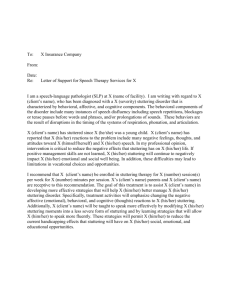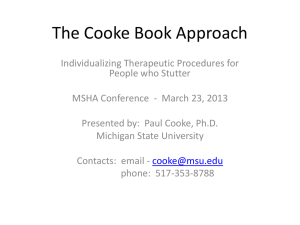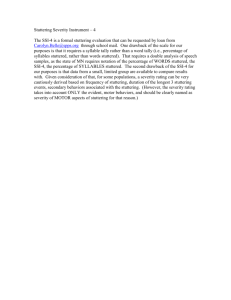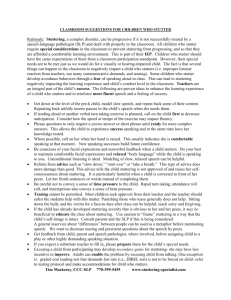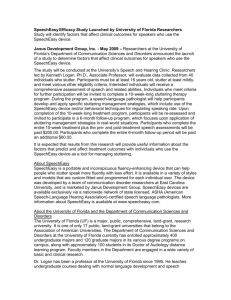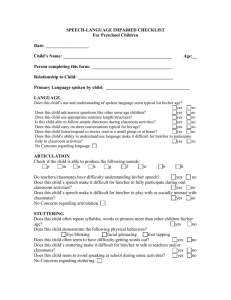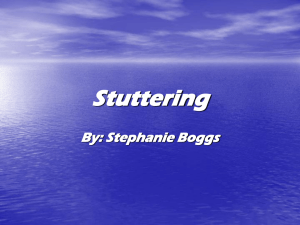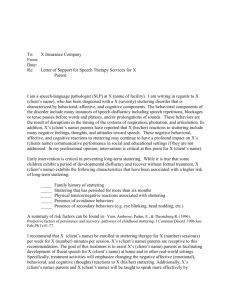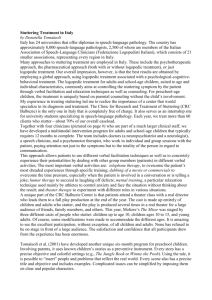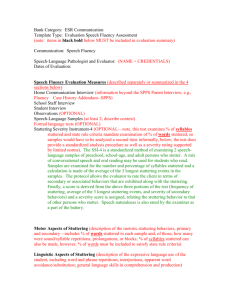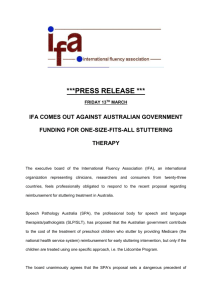here - Division of Social Sciences
advertisement
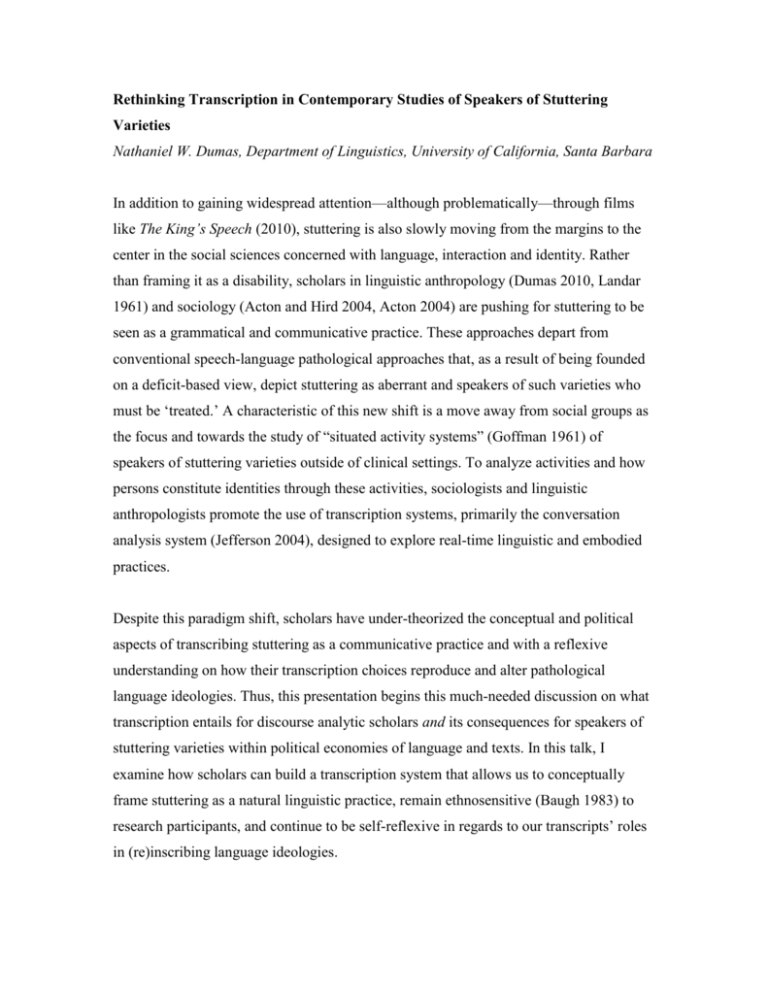
Rethinking Transcription in Contemporary Studies of Speakers of Stuttering Varieties Nathaniel W. Dumas, Department of Linguistics, University of California, Santa Barbara In addition to gaining widespread attention—although problematically—through films like The King’s Speech (2010), stuttering is also slowly moving from the margins to the center in the social sciences concerned with language, interaction and identity. Rather than framing it as a disability, scholars in linguistic anthropology (Dumas 2010, Landar 1961) and sociology (Acton and Hird 2004, Acton 2004) are pushing for stuttering to be seen as a grammatical and communicative practice. These approaches depart from conventional speech-language pathological approaches that, as a result of being founded on a deficit-based view, depict stuttering as aberrant and speakers of such varieties who must be ‘treated.’ A characteristic of this new shift is a move away from social groups as the focus and towards the study of “situated activity systems” (Goffman 1961) of speakers of stuttering varieties outside of clinical settings. To analyze activities and how persons constitute identities through these activities, sociologists and linguistic anthropologists promote the use of transcription systems, primarily the conversation analysis system (Jefferson 2004), designed to explore real-time linguistic and embodied practices. Despite this paradigm shift, scholars have under-theorized the conceptual and political aspects of transcribing stuttering as a communicative practice and with a reflexive understanding on how their transcription choices reproduce and alter pathological language ideologies. Thus, this presentation begins this much-needed discussion on what transcription entails for discourse analytic scholars and its consequences for speakers of stuttering varieties within political economies of language and texts. In this talk, I examine how scholars can build a transcription system that allows us to conceptually frame stuttering as a natural linguistic practice, remain ethnosensitive (Baugh 1983) to research participants, and continue to be self-reflexive in regards to our transcripts’ roles in (re)inscribing language ideologies.
